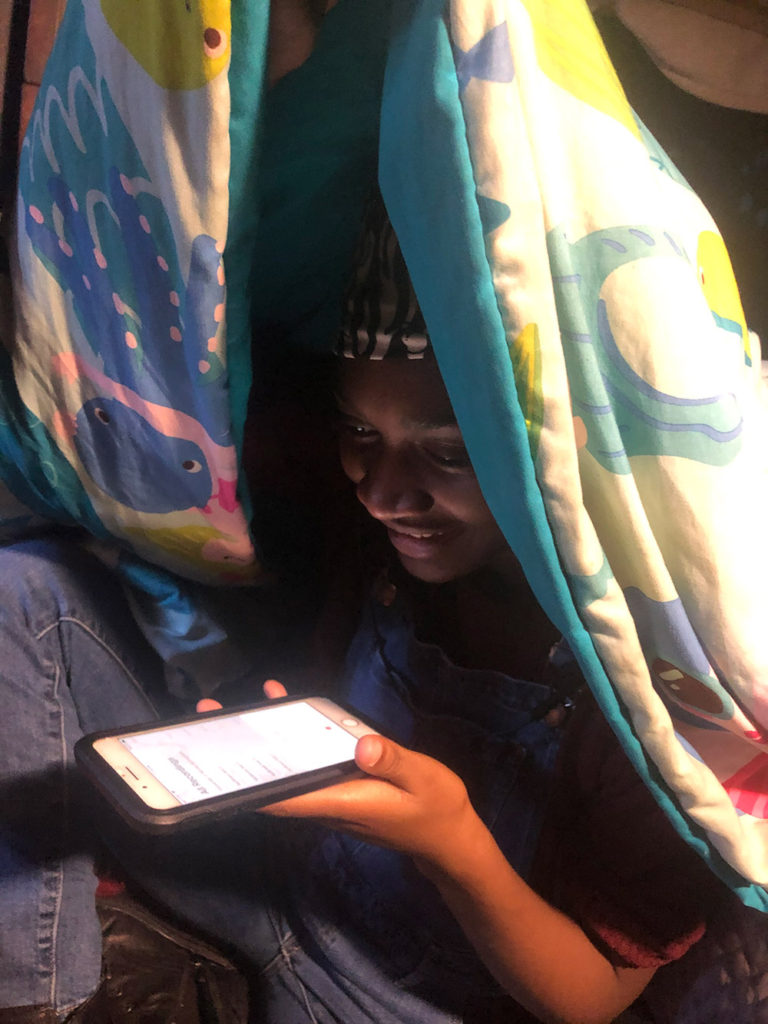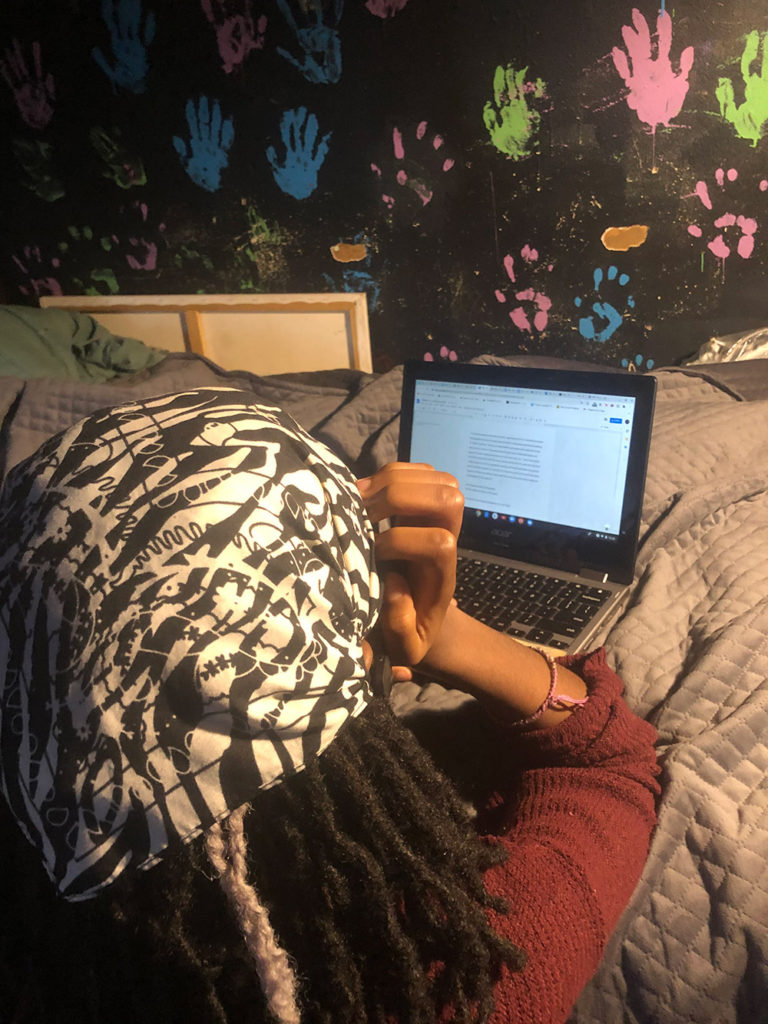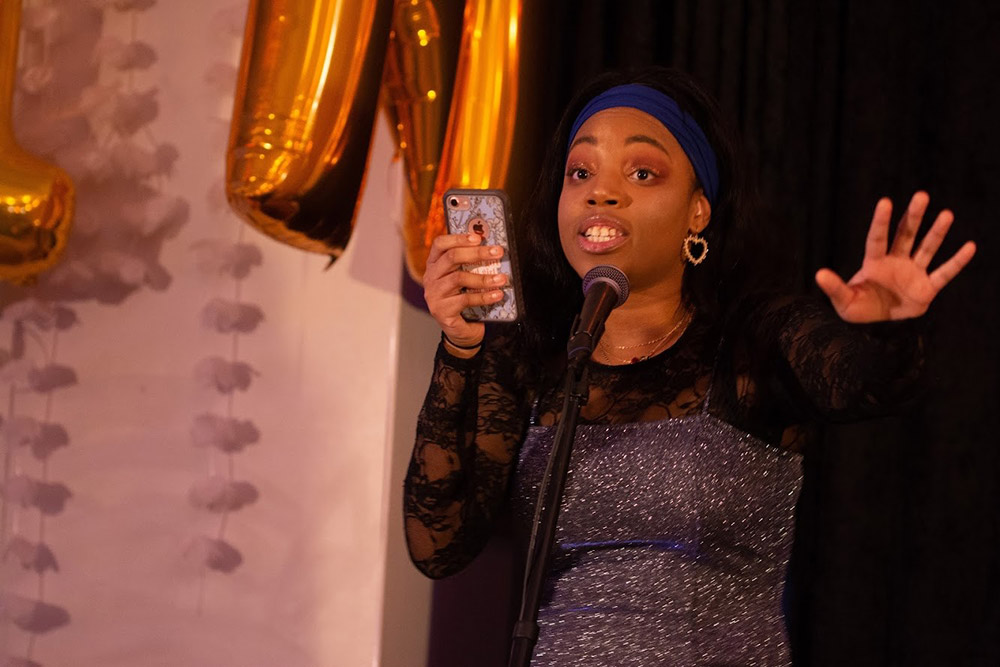
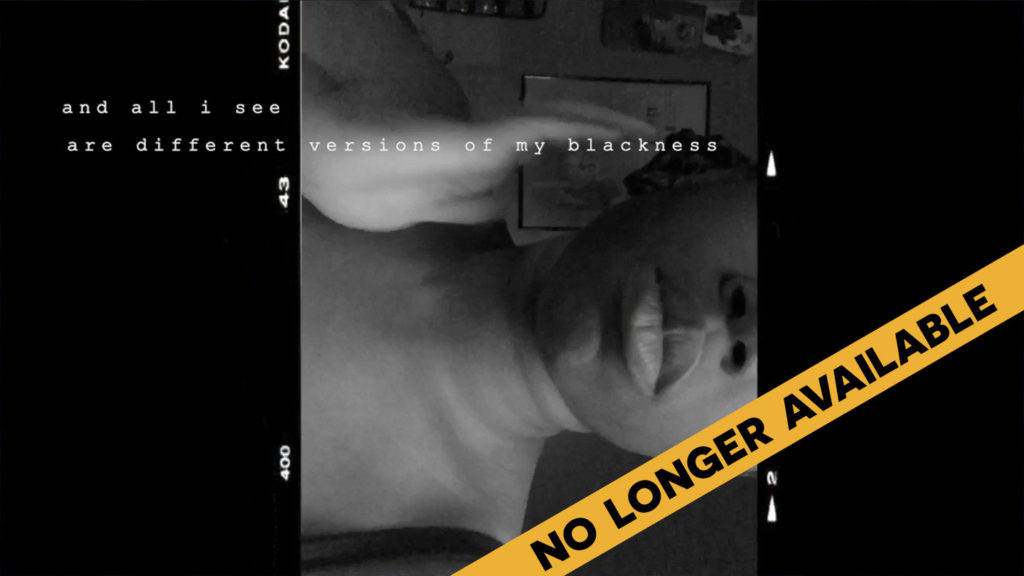
What We See
Written & performed by Kirsten Baity, Keyonna Jackson, & Cori Wash
A series of short pieces exploring and exposing the trials, tribulations, and triumphs of growing up Black and queer in the USA.
About the Artists
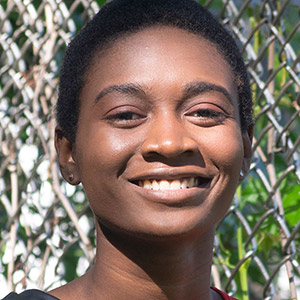
Kirsten Baity (they/them) is a playwright, actor, theater educator, and social media manager for Intimacy Coordinators of Color. Their work focuses on joy and liberation. They have consulted on two curriculums to help uplift young people in the education system and feel most fulfilled when their work is in service of amplifying voices that are usually silenced. They believe that art is a powerful tool that can shift public consciousness and that power is best used when it’s in service of marginalized communities.
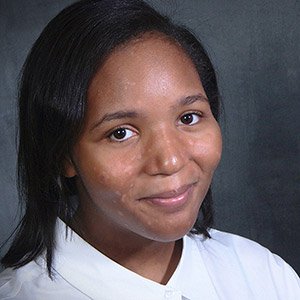
Keyonna Jackson is a southside poet and writer. Through her art, she explores the meaning of the many identities and labels both the world and herself placed on her and how she has learned to live life with those labels attached to her name.
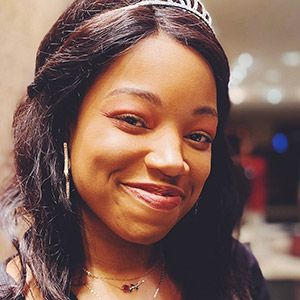
Cori Jean Wash (she/they) is a 22-year-old black, femme, bisexual poet, theatre artist, advocate for black liberation and human rights who was born and raised on the south side of Chicago. She’s the youngest of two and has had a love for performing since she was a little kid and has been involved in theatre since high school. She would like to give a big thanks to everyone who supports her, who is supporting this project and hopes folks are staying safe!
Artist Reflections
KIRSTEN: This process made me think about myself in ways that I try not to. I normally try to avoid thinking about what white America sees because it’s depressing and anxiety inducing, As I state in my piece. There are so many different perceptions and expectations that trying to live up to them is impossible and honestly some of those stereotypes and ideas are harmful. Writing this forced me to think about who I am. I had to think about more than just the labels that I fall under and think about what it is really like not just as a Black person but to be me specifically. Working with Mikeal was helpful because the way he posed the questions in a way that felt respectful and that this project was about sharing our stories and telling the truth rather than being concerned about making the truth palatable for the audience. This experience also feels like a good career move. I hadn’t done anything on film before and now everyone is asking for reels. This is something I’d feel good about putting in my reel or sending to people. Overall I had a lot of fun filming and getting to work with everyone.
KEYONNA: Writing this piece felt like writing my frustration with the world as I saw it. The hypersexualization of sapphics, black women, racial gaslighting, and self-proclaimed activism was right in front of me this entire year. I wanted to let out my frustration creatively. Writing helps release that frustration and I feel more powerful when I put my words together artistically. I know I was writing from my poem through my own perspective, but I know people regardless of gender and race can connect to my anger. I’ve seen those who aren’t LGBT+ rage at the social and systematic inequality we received. I have seen white people speak out about their privilege and how to properly use it. This year filled me with anger and I wanted to write how angry I am, but also how trapped I feel. When you feel like the odds are against you both socially and systematically, sometimes you can’t help but feel trapped and hopeless. But I know for certain things will get better. Hopefully, I live to see that change.
CORI: Drawing inspiration from the pieces I saw from the Stony Island Art Bank was the easy part whereas finding what part of my story as a black woman I wanted to share was the most challenging because there are so many facets and I wanted to make sure I was using the right language, I wanted to stay true to my form of art, my writing and my vision to give people a genuine experience. Overall, the entire process was very rewarding because once I had my focal point, pen touched paper and the rest was history.
